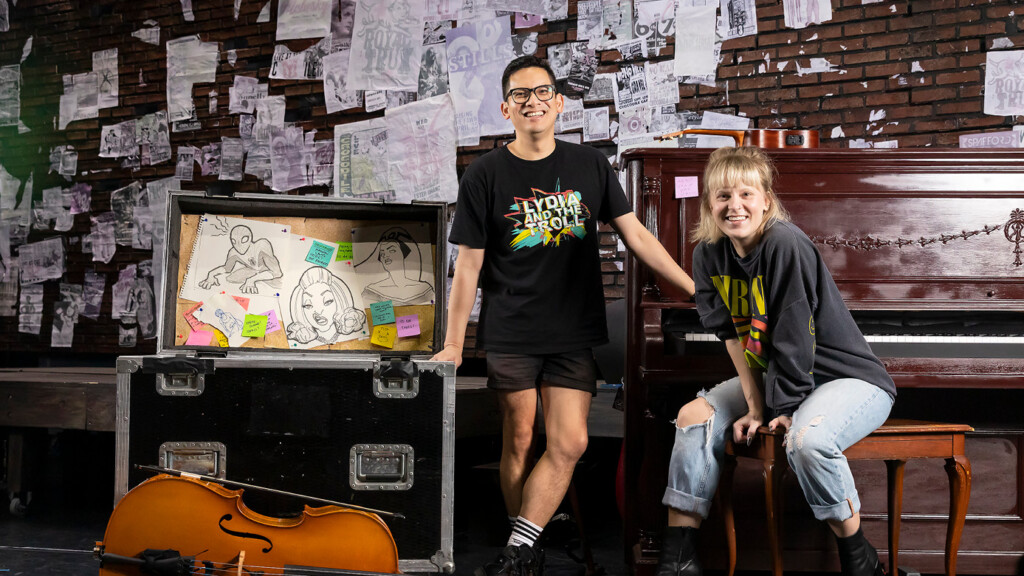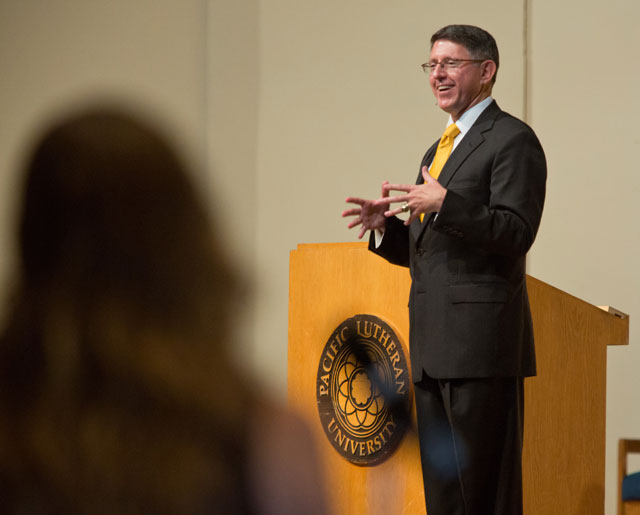Page 21 • (205 results in 0.077 seconds)
-

limits to those charging times can be attributed to different parts of the battery, which is what makes this research exciting for students.” Now, buoyed by the NSF grant and a recent partnership with the University of Washington, Waldow’s polymer experiments are being used to create organic transistors based on polymers. While batteries store energy, transistors control the flow of and amplify electric currents. They are crucial elements of nearly all modern electronics. Waldow and his team hope to
-

. Eric E. Finney, Ph.D., and Elizabeth A. Kaley Department of Chemistry Forensic Analysis of Biodiesel Charles and Ann Laubach Student Research Fund The analysis of four different biodiesel blends, as well as homemade biodiesel prepared from vegetable oil, has been performed using gas chromatography-mass spectrometry. The identification of methyl esters within the biodiesel along with any background components is made possible by recognizing their mass spectral fragmentation patterns. These fuels
-

5. Its first production outside of the Emerald City was at San Diego’s Diversionary Theatre, one of the oldest LGBTQIA+ theaters in the United States. Huertas, deLohr, and Williams reprised their roles, and “Lizard Boy” was a hit in Southern California. "The 95-minute musical blends comic books, Godzilla mythology, ‘Spring Awakening,’ cello music and a surprisingly sweet love story in an innovative, funny and wildly entertaining way… Huertas has a sweet, nerdy vulnerability and hopefulness
-

program that blends all the international elements with domestic U.S. programs to get students engaged with people from immigrant groups or other cultures that might be different from their own Take for another example faculty-student collaborative research and creative projects: at the moment, we don’t have a good clear picture of how many of our students are engaged such collaboration. At best, I would say, we are able to offer such an opportunity to almost any student who expresses interest, but
-
, professor of chemistry, received another in a long series of Natural Sciences Foundation grants–this one for $98,000 for his research in polymer chemistry. Archaeologist Don Ryan, a PLU alumnus and a faculty fellow in humanities, published “Beneath the Sands of Egypt” to critical and popular acclaim. These are just a few examples of faculty scholarship, to which one can add the dozens of performances by our music faculty, creative works by our faculty in art and theater, as well as the contemporary
Do you have any feedback for us? If so, feel free to use our Feedback Form.


